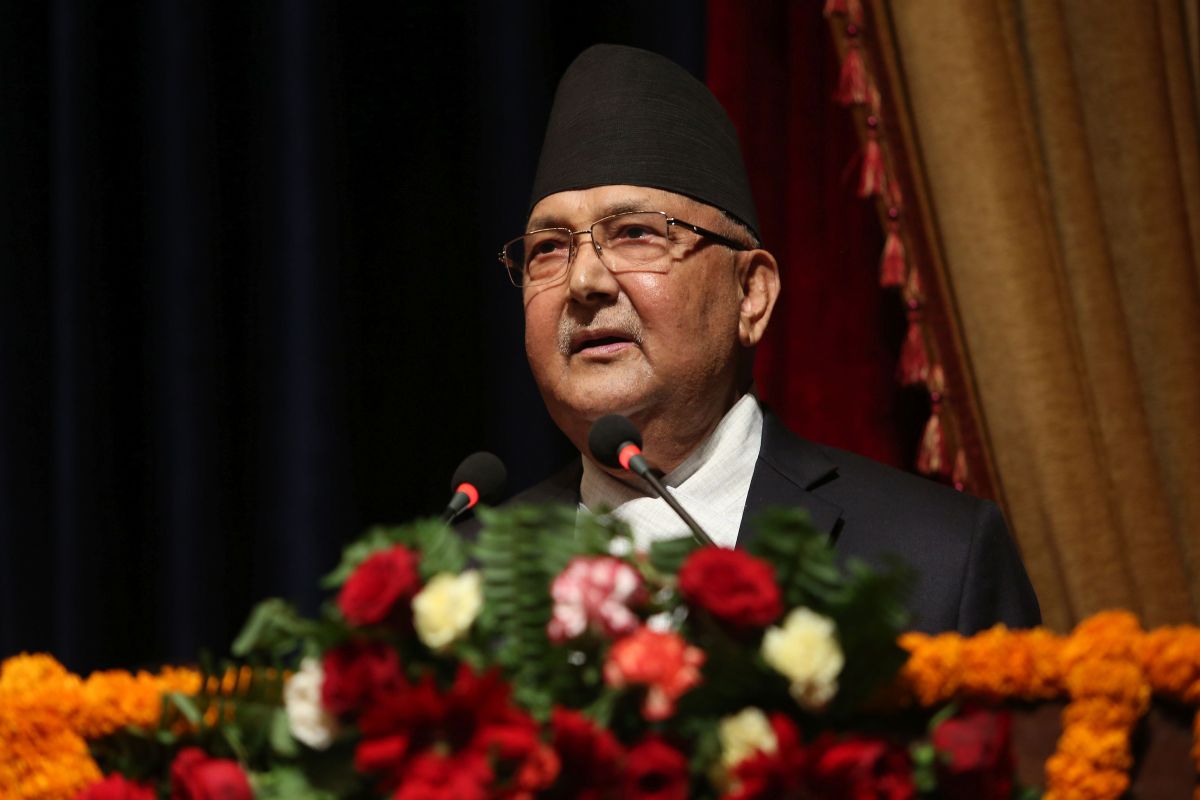Bangladeshi man in BSF net after visa issues
The BSF officials have come to know after they got Malaysian currency Ringgit from the possession of an apprehended Bangladeshi national
The two ~ who had merged the Communist groupings they each headed to form the Nepal Communist Party in 2018 ~ had been locked in a bitter battle over the past few months, triggered by what Prachanda perceived as a betrayal of the unity deal under which one would rule the country and the other would manage the party.

Nepal Prime Minister KP Sharma Oli (Photo: IANS)
With Nepal’s tallest Communist leaders, Prime Minister KP Sharma Oli and party co-chair Pushpa Kamal Dahal aka Prachanda, having appeared to have settled their differences, peace at least for now appears to have returned to the politics in the Himalayan nation. The two ~ who had merged the Communist groupings they each headed to form the Nepal Communist Party in 2018 ~ had been locked in a bitter battle over the past few months, triggered by what Prachanda perceived as a betrayal of the unity deal under which one would rule the country and the other would manage the party. What had started as a movement to get Oli to give up either his Prime Ministership or his position as co-chair of the united party soon degenerated, in the face of his intransigence, into a drive to get him to leave both positions.
As the Prime Minister hummed and hawed, skipped vital meetings, launched behind-the-scenes negotiations and reportedly got even the Chinese embassy in Kathmandu to intercede on his behalf, things seemed to get murkier by the day.
Finally, the two leaders appointed a six-member task force to find a way out of the mess and this group submitted a report a few days ago. Under the terms of settlement now agreed upon, Oli will lead the government for the full term while Prachanda will play an “expanded” role as co-chair of the NCP.Observers have been quick to point out that this is a return to the basics of the earlier agreement between the two and gives some face to both.
Advertisement
While a deal appears to have been reached, and may even hold, the bitterness of the past few months will not go away in a hurry. For by last month, the rift had widened to the extent that many believed the party was heading for a split. Many of the party’s second-rung and youth leaders barely spoke to each other.
The task force report clearly blamed the two leaders for the crisis, noting that “recurring problems in the relations between two chairs had negatively affected the activities of the party and the government.” But while Oli and Prachanda are the senior-most leaders in the Communist pantheon, other senior leaders such as Madhav Kumar Nepal and Jwala Nath Khanal will have to be convinced there is something for them in the new arrangement and may have to be placated with some posts for their followers. But even Nepal’s Communist factions agree that the compromise hammered out between Oli and Prachanda does not address core concerns that members of the two groups have.
Primary among these is the fact that while they both claim Communist pedigree, their ideological positions are some distance apart. But for now, power and the mechanics of sharing it have acted as a glue and Nepal must hope its government will rule without distractions.
Advertisement